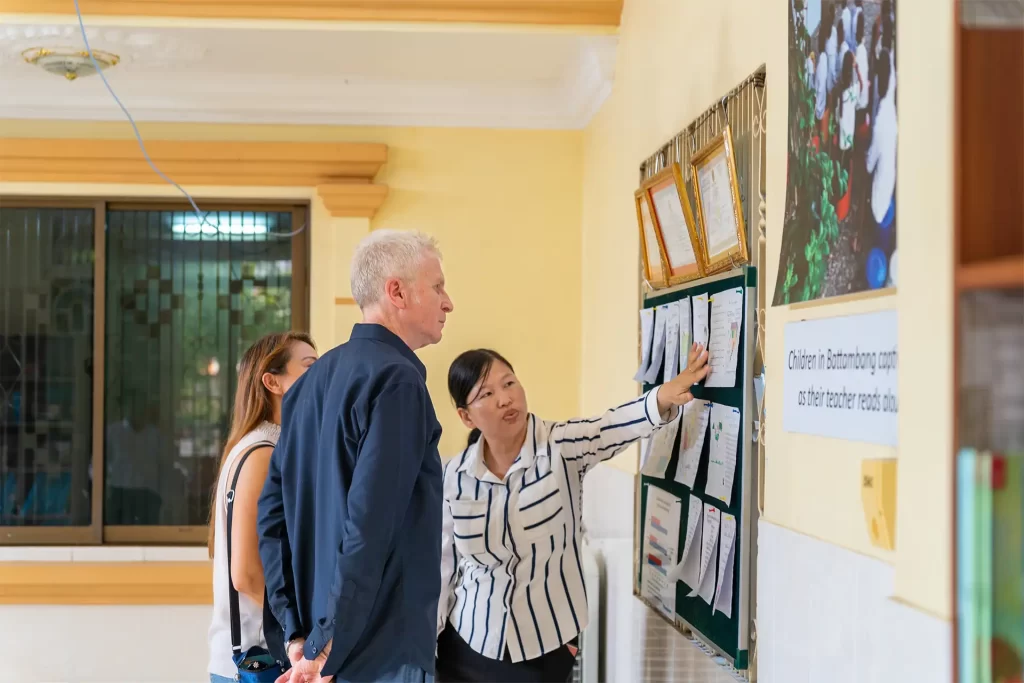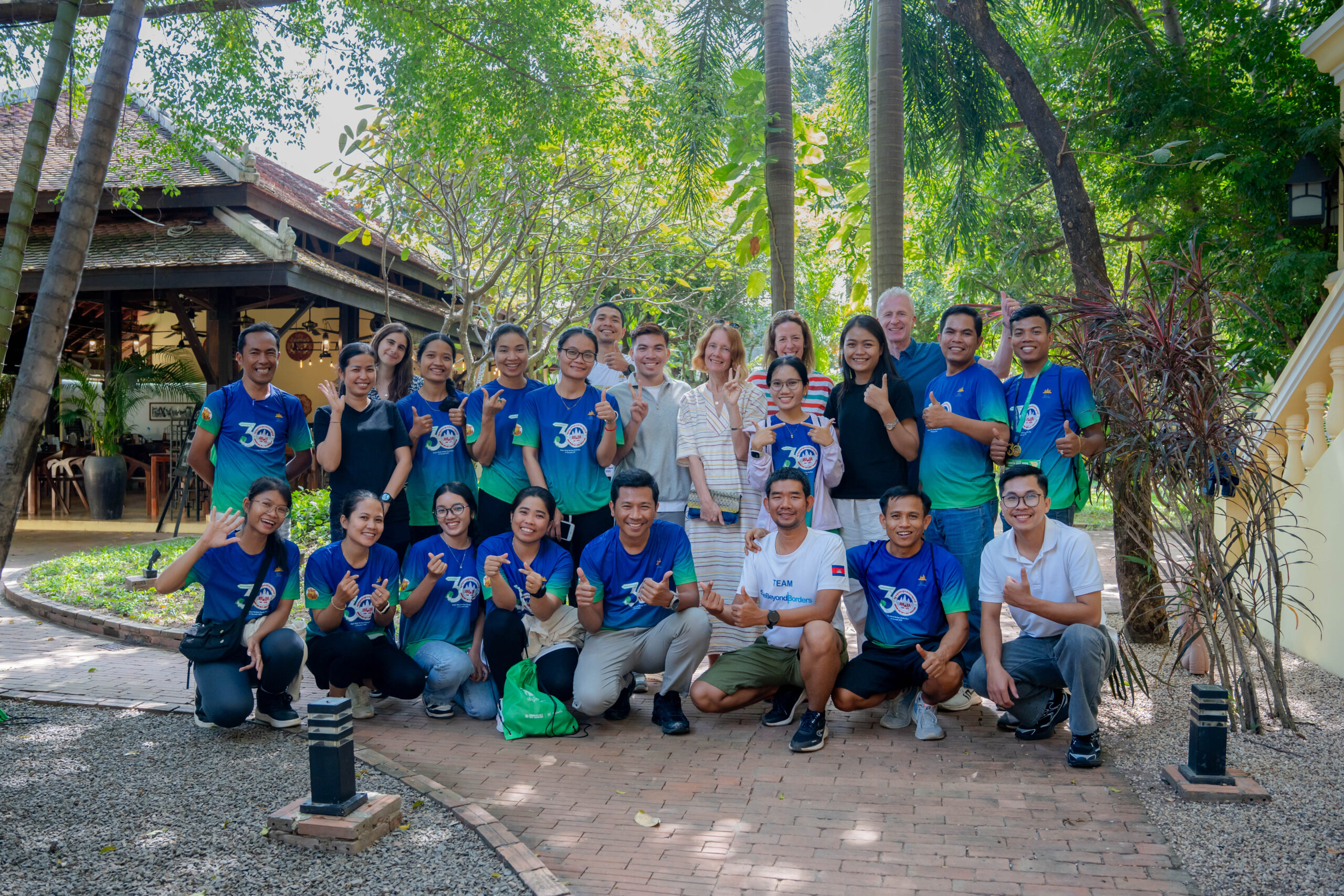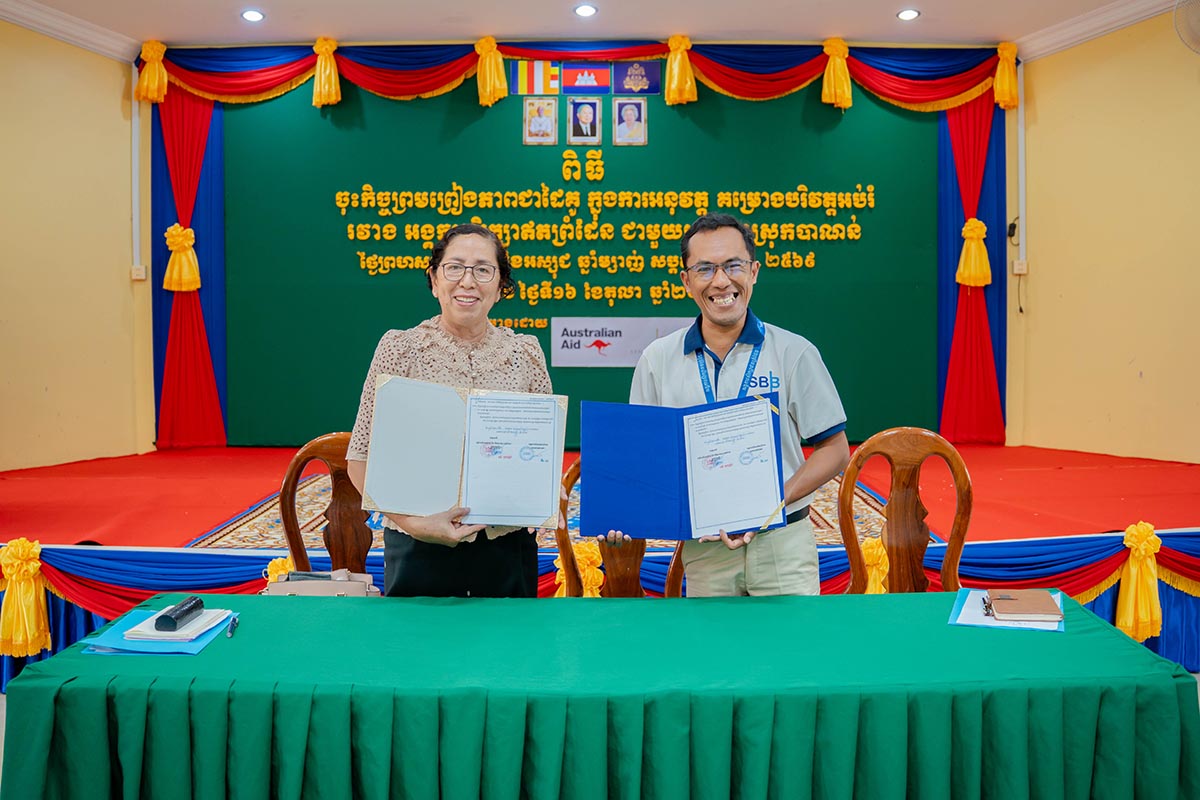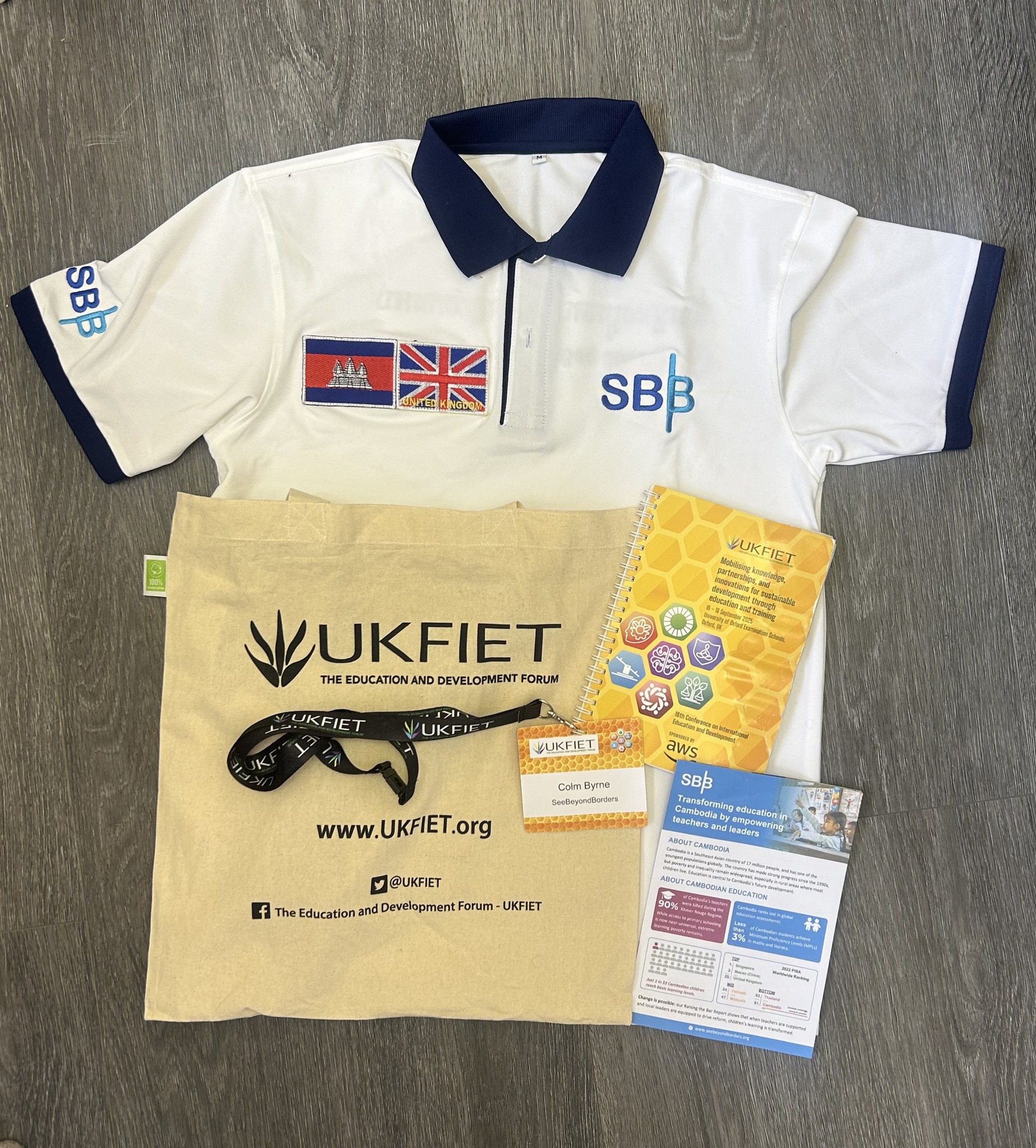Mike Walton is a semi-retired educator from the UK, 20 years a teacher followed by 20 years a headteacher in both the UK and Thailand. He has been a board member of many international educational organisations, including being Chair of The Federation of British International Schools in Asia. Earlier this year he took up the position as Chair of the Board of Trustees for SeeBeyondBorders (UK).
“I recently had the pleasure of a 3 day visit to Battambang to see first hand the work of SeeBeyondBorders, meeting the local staff and spending time in some of the schools that deliver the projects.
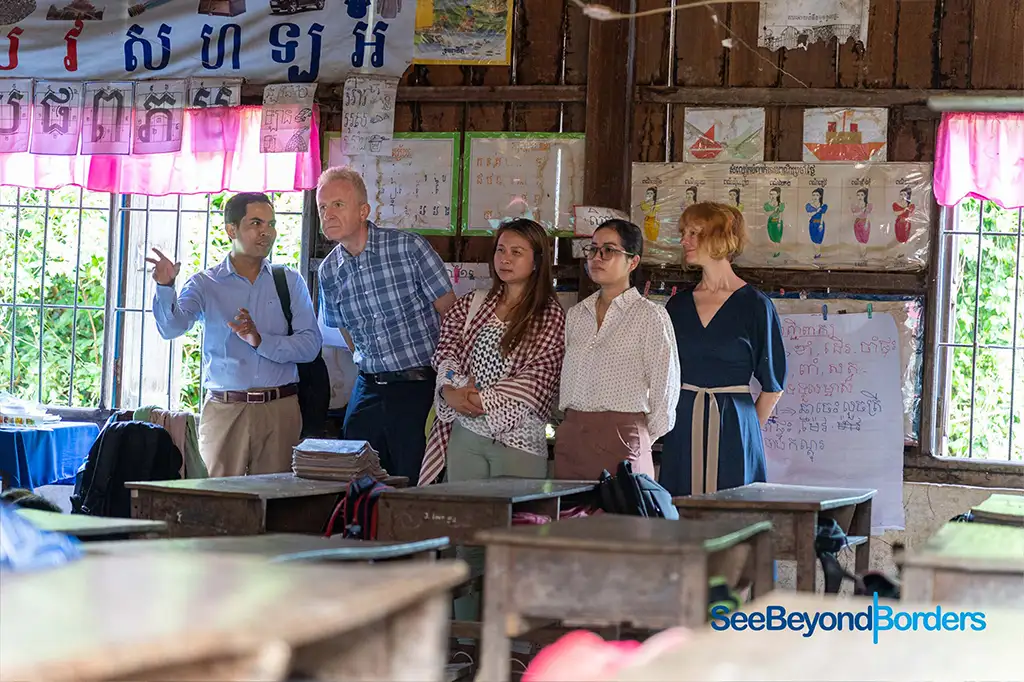
I knew something of Cambodia’s difficult recent history and current economic challenges, so understood that public schools would not be resourced in the way my UK schools or Thai international schools are. Of course the differences are not just physical in the form of buildings, grounds and facilities, but also in pedagogy, levels of staffing, training, management practices and organisational support structures. I was therefore very interested in what ‘real time‘ benefits I would be able to see in the learning experience of children as a result of the partnerships with the programmes delivered through SeeBeyondBorders.
I was able to visit 4 schools and with kind translators was able to speak with headteachers, class teachers and children. Lesson observation centred around literacy and numeracy, with the teachers using tablets and projectors provided by the Educational Technology project. I was able to talk with change-makers supporting children and mentors supporting teachers.
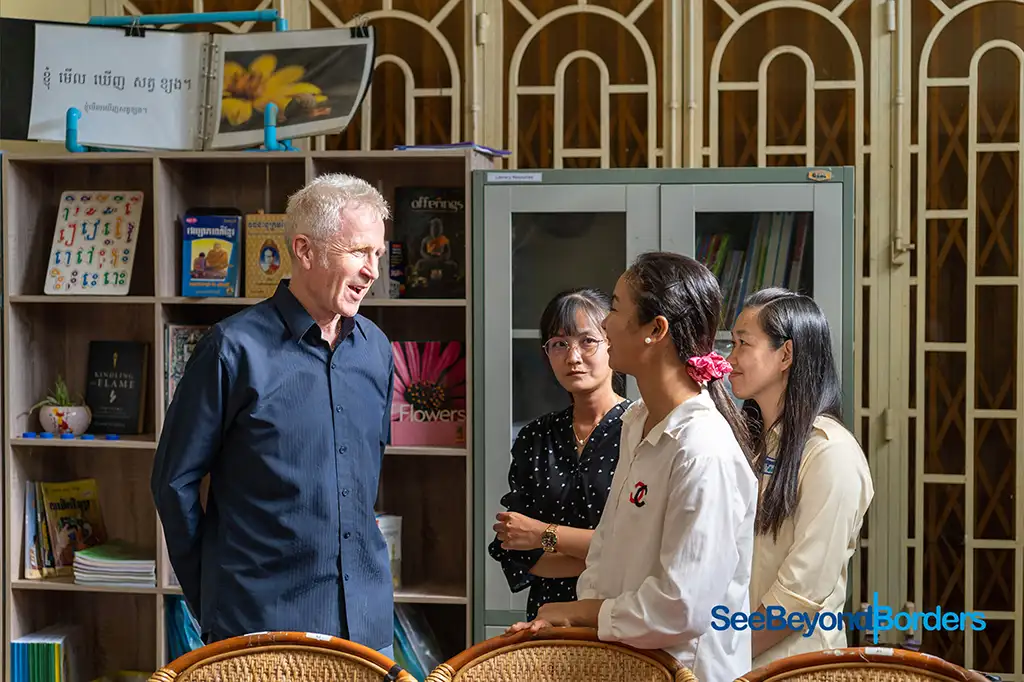
Despite some large classes with up to 50 pupils, the children were actively engaged in every lesson I watched. All well-mannered and eager to participate and contribute. Something was going very right! This first hand impression certainly supported the attainment data I had previously seen, indicating far better progress for classes working with SeeBeyondBorders than those elsewhere.
When talking with teachers, it was clear that their own confidence had been raised by the pedagogy, teaching resources and basic technologies provided by SeeBeyondBorders. These seemed such simple things on the surface, but I know that changing the way one teaches may bring a sense of risk and apprehension, therefore mentoring had a valuable part in supporting the process. The sense of teamwork between the teachers and staff of SeeBeyondBorders was palpable.
Then there were the change-makers. Each had their own story of what attracted them to this 2 year programme and what they wanted to achieve by the end of it. Beyond the obvious educational value, it seemed to me that this female empowerment could benefit society well beyond the school gates.
I suspect that in Cambodia such educational success at an early age is about far more than the attainment data considered so important in the west; it will likely impact on how long a child stays in education. With only half of children regularly attending school beyond primary age (11), this takes on very significant meaning.
At the end of the second day, two things really struck me. The first was an appreciation of the many years of planning and relationship building, the success of what I was observing could not possibly just come ‘off the shelf’. The programmes had been very carefully considered to meet the needs of the children and the schools, whilst relationships with staff at every level were built on very positive foundations. Everyone seemed aligned in a common cause.
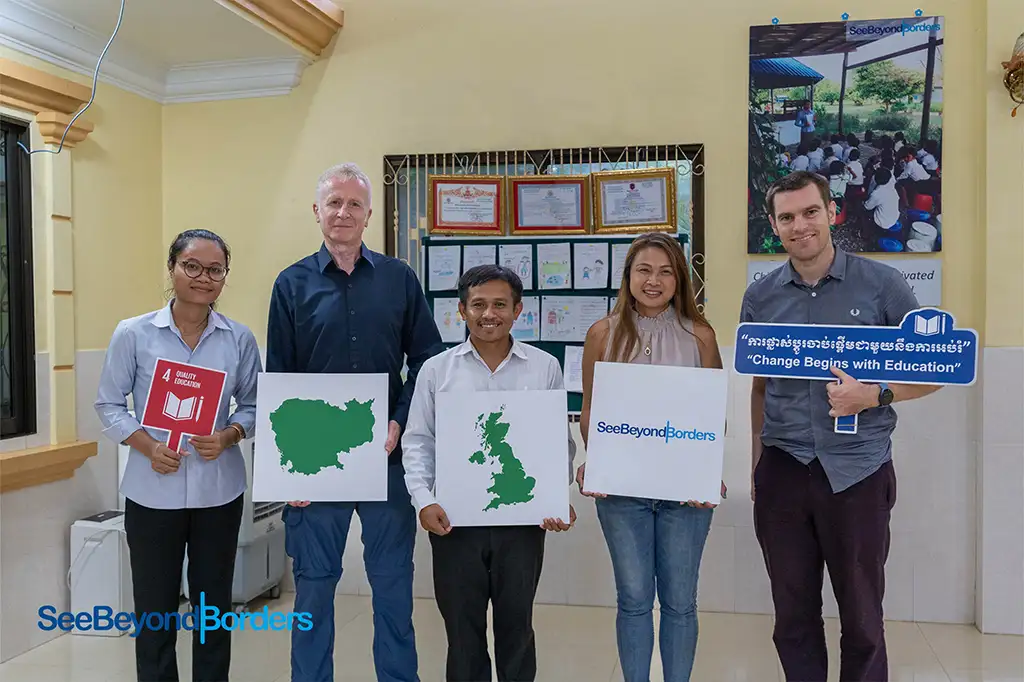
The second thing was that SeeBeyondBorders was delivering something that seemed quite unique in that particular educational space. Whilst others might be contributing greatly in terms of buildings and facilities, the SeeBeyondBorders projects were totally focussed on the process of pupil learning. In that way everything was delivered through Cambodian staff, with the subsequent promise of long term sustainability.
I also gained greater awareness of the relationships being built with the local and provincial government, as well as Cambodian teacher training colleges. This made me even more optimistic that the methodology and benefits could be contagious and spread far beyond the current school communities. The local staff I had met were united in their commitment to see education improve, whilst supporters overseas were giving generously in time and resources to make it all possible.
And so a big thank-you to everyone I met, as well as those I didn’t. As with every ambitious organisation, new opportunities come with new challenges, some predictable (eg. funding) and some out of the blue (think of COVID!). I have no doubt that every part of SeeBeyondBorders, and its partners, will continue to work together to improve the life-chances, through education, of the next generation of children in Cambodia. I look forward to returning soon to see for myself.”
